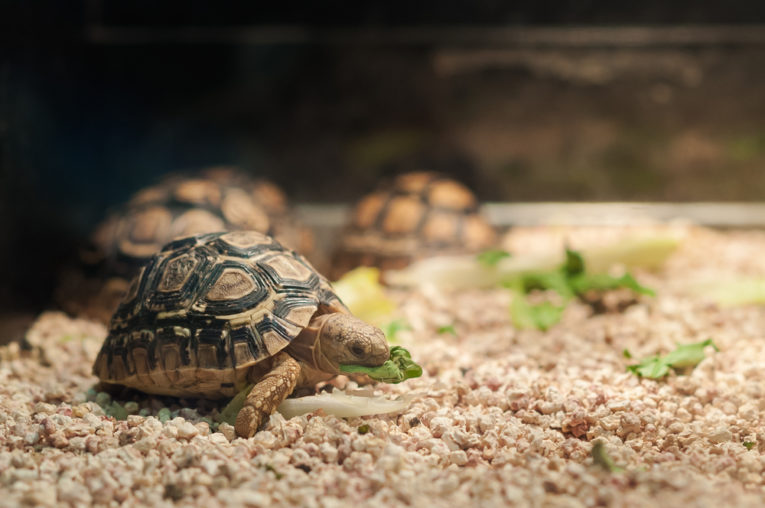In the second part of our Caring for Reptiles blog, we look at the food and dietary requirements of your reptile pets. As with their living conditions, reptiles need a certain standard to be met in order for them to thrive, with levels of nutrition that you should aim to achieve.

Make sure you do your research
The first thing to know is that every species of reptile is different. One diet will not suit all breeds, so be sure that you find out all you can when your purchase the reptile or consult a reptile expert at your first opportunity. You should also check:
- Is your reptile a herbivore, carnivore, omnivore or insectivore?
- Are there particular nutritional needs that your reptile is known for lacking, such as Vitamin D or calcium? Aim to keep on top of these needs from the start, using products such as Exo Terra Reptile Calcium Powder Supplement. There are supplements available for many purposes, such as skeletal growth, to help stimulate appetite and for aiding digestion.
- No matter the type of reptile, fresh water should always be available to your pet at all times.
- Some reptiles have specific feeding schedules, as in the time of the day or indeed time of the week. Some will store their food rather than eat it straight away or simply do not need high levels of food each day.
Dietary tips for your reptile petHere are just a few points of advice for what to give your reptile. For more details on each of the foods and for many more options, visit our reptile food page.
- Give your reptile pet fresh food wherever possible. We have a wide range of live reptile food options available which will help to make like much easier.
- Bearded dragons like to eat insects, fruits and vegetables.
- Geckos prefer insects. Crickets are a good idea for live food, perfect for reptiles of varying weights and developments.
- Snakes are not for the faint-hearted, as many prefer a larger variety of live prey, such as rats and mice.
- Amphibians can be given Arcadia Earth Pro Amphibi Gold pellets, which are ideal for feeding on land or in the water and will help to stimulate natural feeding behaviours.
- Lizards and amphibians will benefit from eating insects that have been dusted with calcium and vitamins.
- Monkfield Jelly Pots are perfect for fruit and nectar eating creatures, as part of a balanced diet.
- Mealworms are an excellent form of food for many reptiles, as they are full of vitamins, good fats and protein.
It is important to be aware of your reptiles specialised diet right from the start. This will help you to avoid any malnutrition as your new pet settles into your home, avoiding expensive veterinary bills and giving you a happy reptile who is willing to interact with you. Sources
http://abdragons.com/blog/18-tips-for-taking-care-of-your-pet-reptile/http://animal-world.com/encyclo/reptiles/information/reptilecare.php